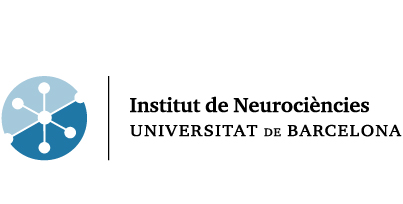
FERNANDO AGUADO
Position: Associate Professor
Research team
Virginia Teresa Pla Requena
Postdoctoral researcher
virginiapla (at) ub.edu
Neus Barranco Muñoz
Early stage researcher
nbarranco (at) ub.edu
Irene Sánchez Dominguez
Early stage researcher
irenesanchez (at) ub.edu
Contact details
Dr. Fernando Aguado
Department of Cell Biology, Physiology and Immunology
Faculty of Biology, Av. Diagonal 643
08028 Barcelona (Spain)
934034632
faguado (at) ub.edu
Research Interests
The group is interested in the cellular and molecular mechanisms underlying secretion in neural and endocrine cells. These include studies on biogenesis, trafficking and exocytosis of secretory organelles and excitation-secretion coupling. We also study alterations of secretory processes in neurons and glial cells in Alzheimer’s disease, the mechanisms that sustain these disturbances and their pathological role. We combine multiple in-vitro, ex-vivo and in vivo approaches with biochemical and cellular and molecular biology techniques to analyse secretory pathways. Moreover, the results of our research are expected to contribute to the identification of new biomarkers of neurodegenerative diseases.
Current Research Lines
- Secretory pathways in neural and endocrine cells
- Pathophysiology of Alzheimer’s disease
Highlighted publications
· Plá V, Barranco N, Pozas E, Aguado F. Front. Amyloid-β Impairs Vesicular Secretion in Neuronal and Astrocyte Peptidergic Transmission. Front Mol Neurosci. 2017 Jun 28;10:202. doi: 10.3389/fnmol.2017.00202. eCollection 2017.
· Paco S, Hummel M, Plá V, Sumoy L, Aguado F. 2016. Cyclic AMP signaling restricts activation and promotes maturation and antioxidant defenses in astrocytes. BMC Genomics. 17:304.
· Plá V, Paco S, Ghezali G, Ciria V, Pozas E, Ferrer I, Aguado F. 2013. Secretory sorting receptors carboxypeptidase E and secretogranin III in amyloid β-associated neural degeneration in Alzheimer’s disease. Brain Pathololgy. 23:274-84.
· Paco S, Pozas E, Aguado F. 2010. Secretogranin III is an astrocyte granin that is overexpressed in reactive glia. Cerebral Cortex. 20:1386-97.
· Aguado F, Espinosa-Parrilla JF, Carmona MA, Soriano E. 2002. Neuronal activity regulates correlated network properties of spontaneous calcium transients in astrocytes in situ. The Journal of Neuroscience. 22:9430-44.



